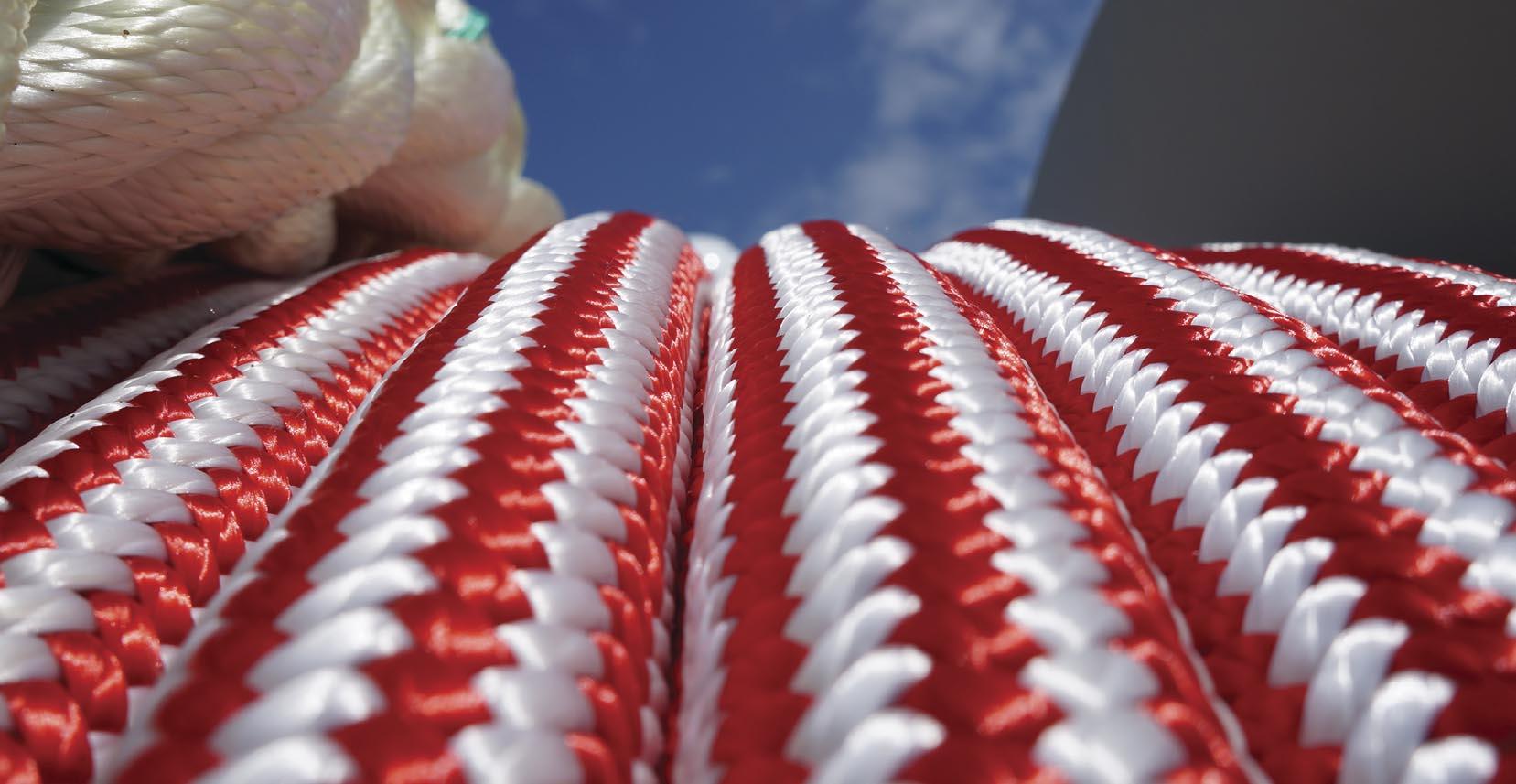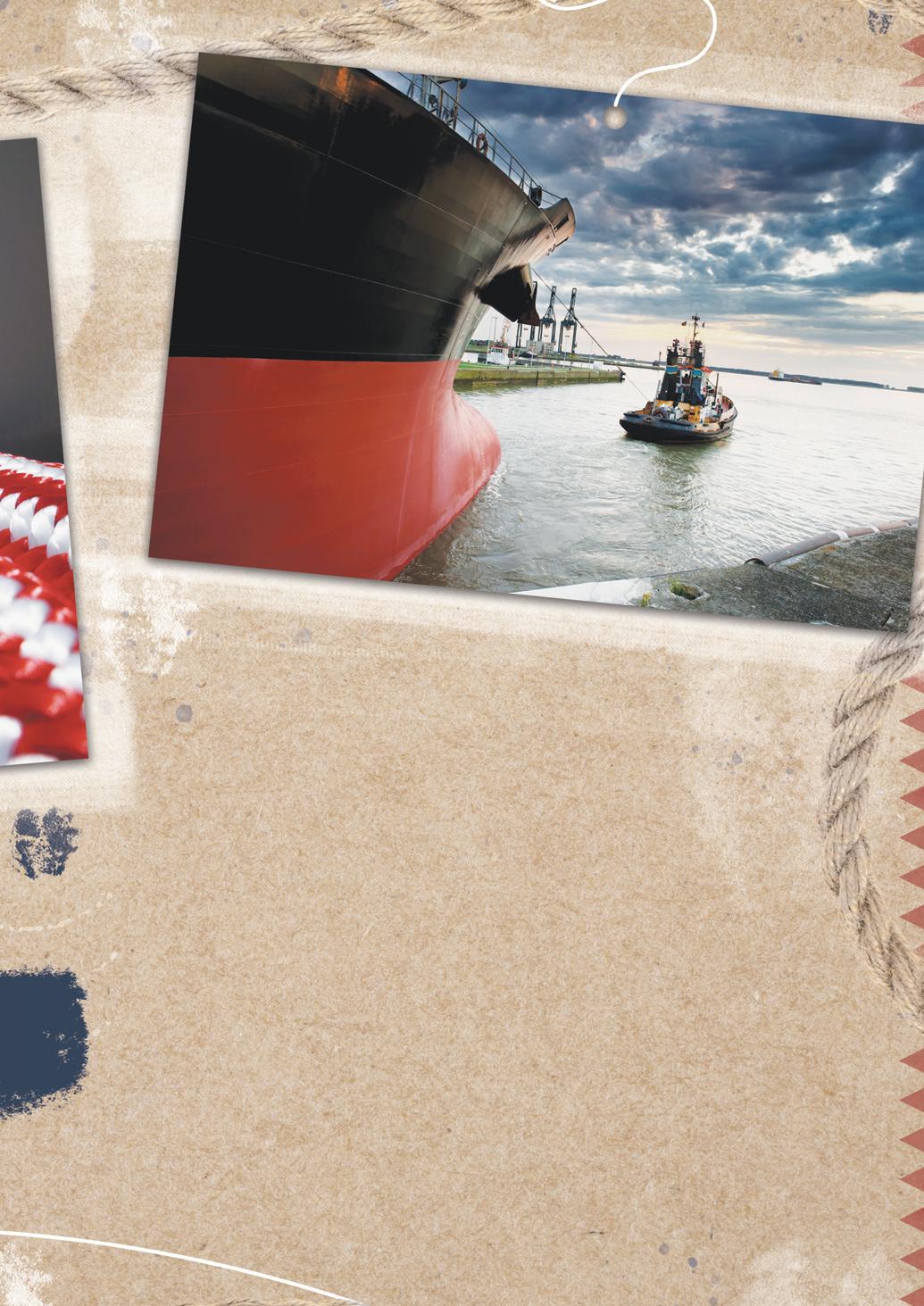



Katradis Marine Ropes is an established manufacturer of quality sup- plies with a strong presence in the maritime industry. Its long course stretches well over eight decades and has granted Katradis a high degree of technical know-how and quality manufacturing expertise.
CEO Constantinos Katradis explained to Hannah Barnett how company has established itself as the preferred supplier of all major shipping companies around the world.
The long and distinguished history of Katradis Marine Ropes goes back to the first half of the twentieth century. That is when it was founded, in 1936, by Konstantinos Katradis, as a ship supplier specialising in high-quality mooring ropes. The company continued in the field, producing innovatively designed, good quality mooring ropes to the present day. It has also made zinc and aluminium sacrificial anodes for corrosion protection of commercial vessels since 1968. These days, the wider Katradis Group also supplies anchors and anchor chains for port development and deck equipment. This allows it to serve the marine industry as well as the sectors of offshore, aquaculture, fishing, and yachting. In recent years the company’s product line has expanded to include yachting ropes as well as fishing and aquaculture nets.
Constantinos Katradis is CEO of Katradis Marine Ropes and has been working in the industry for over 20 years. In a few choice words, he defined what sets the company apart from its competi -
tors: “Price. Quality. And an understanding of what the market needs.”
Mr Katradis oversees the company’s global network from its base in Greece, where it supplies more than 10,000 ships with Katradis mooring ropes and other marine products at ports around the world.
“Our factory is just outside Athens, and we have a presence in most major ports around the world, such as Rotterdam, Singapore and the UAE,” Mr Katradis said, painting a picture of an international operation.
Flagship rope
It is as rope producers that the Katradis Group first made its name and rope where it continues to dominate the market. The company manufacture a wide range of synthetic mooring and steel wire ropes.
Katradis created its first braided ‘double-twisted’ rope in 1944 and continues to sell them today. Its 8-strand ropes are con -



structed using yarns of Nika steel double twisted fibres. The fibres are produced with a unique formula, which takes into account stretching ratios, material percentages, and stretching temperatures. As a result, they exhibit a much higher tenacity and abrasion resistance than most conventional fibres.
The double-twisting process also offers improved performance in dynamic and shock-loading conditions, while maximising resistance against internal and external abrasion. It is this combination of powerful fibres and the elaborate double twisting process that make the Nika cord 8-strand rope a jewel in company’s crown, and what it describes as its flagship product.
Everything the company makes is infused with the Katradis philosophy, though. This means ensuring ships are using the safest possible equipment to minimise the chance of accidents.

A good way of ensuring that is through splicing. Katradis manufacturing experts emphasise the importance of attention to detail when it comes to eye splicing and perform strength tests under strict quality control procedures. This ensures the efficiency and performance of the rope when used in mooring operations.
Snap-back rope
Another of the company’s signature products that emphasise high safety standards, is its snap-back rope.
A snap-back is the sudden recoil of a mooring line because
of its failure under tension. A snap-back zone on a mooring deck is the space where it is anticipated that the failed mooring line could recoil with great velocity.
As any mariner knows, snap-back zones are potentially very dangerous and mooring operations are one of the most critical activities a ship’s crew needs to perform. By following international reduced snap-back rope testing methods, the company has put its Nika steel fibres to use once again and developed mooring lines of reduced recoil in a ‘special polymer blend.’
“We stand out due to the high quality in competitive price and understanding of what the market needs”
Our RSB (Reduced Snap Back) ropes have been developed for safer mooring operations in the shipping industry. The research and development team created a mixture of superior mechanical properties compared to conventional polypropylene fibres. These properties allow for reduced recoil on a tense rope, giving ship’s staff valuable time to react and seek safety.
Manufactured and certified by international standards the ropes also offer reduced recoil effect by their unique inner-braid rope structure that enables the restraining of snap-back release in case of rope partition. To reassure rope longevity, the developers have also added UV stabilisation for increased protection against sunlight that normally affects all polymer materials. The snap-back rope can be used in mooring, anchoring, tow lines and STS operations.
Similarly impressive, the green revolution has extended to the rope business. Being an eco-conscious company, keen to promote sustainability, Katradis manufactures its products based on the highest safety and eco-friendly standards. Its new ‘eco-ropes’ are made from a production process which requires 59% less energy. The fibres are also specially designed to reduce CO2 emissions.
A vision for another 100 years
There is a reason the Katradis Group has been around for so long. Its products are cleverly designed and well sourced, from a network of suppliers it has been using for a long time. The company has a clear selling point, position in the market, and vast swathes of expert knowledge on its team.
Nonetheless, all industry has been affected by disruptions in the global supply chain in the last few years. Mr Katradis is reflective and cautiously optimistic about how the company has navigated the turbulence.
“We are certainly influenced by the global situation,” he said. “With the sort of economy that we are living in, we have seen a large increase in transportation costs. There has also been a very big fluctuation in energy costs and in the price of raw materials. So, there is a sense of instability in the global economy. We are optimistic about the future, but I think the next two or three years will be difficult for global markets in general.”
Going forward, the company hopes to continue at the top of its game. In the words of Mr Katradis, that means: “supplying the best customers, supplying the best quality products, trying to keep up with competition in the maritime industry.” n


